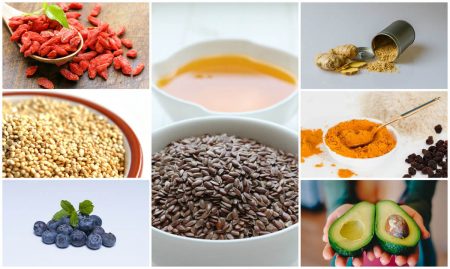
Research suggests that between twenty-three percent and thirty percent of life expectancy are genetic. The rest is a mix of lifestyle and genes. Despite the fact people are living longer, the average lifespan hasn’t changed much over time. There are many factors that affect the life span of a person. The most important are exercise and healthy eating habits.
Genetics is still in the early stages of research, but it has been proven that higher lifespan can be linked with nutritional requirements. The study also found that 25 per cent of variation in human lifespan can be attributed to genetic factors, and that many genes contribute to aging. Three genes have been associated with longevity, although they are still not fully understood. These are the APOE gene, the FOXO3 gene, and the CETP gene. These genes don't appear play a significant role in determining one’s life expectancy but are known to work together.

The average American life expectancy is around 80-80 years. Asian-Americans have a life expectancy of almost 100 years. Black Americans have the shortest lifespans, but they tend to have a poorer health status. White men also have higher rates for cancer, heart disease, diabetes and heart disease than their black counterparts. Women live longer than men, however. Although there are many theories as to why women live longer, all of them can be attributed to better health and less physical activity.
Lifestyle factors are more important than genetics. The environment a person lives in, the food they eat, and the amount of physical activity he or she engages in all their daily activities all have a strong influence. Lifestyle is more important than genetics for determining how long a person lives. As people age, they are more likely to be healthy and avoid many age-related diseases.
Lifestyle, genetics and environment can all impact the life span. People who live longer than their peers are healthier. The length of their lives is determined by the environment and lifestyle they live in. In addition, the diet and nutrition of people living in poorer regions can have a direct effect on their longevity. These factors are important but not always causal. Eat healthy food if you want to live longer. People who eat more fresh fruits and vegetables are also more likely live longer.

Scientists have looked at people who live well into their nineties. These individuals generally have the same lifestyles. They don't smoke, they're not overweight, and they have no medical conditions. However, they are more likely to be non-smokers. They are also capable of coping well with stress. They are more likely to be older and female. You should also note that older adults with good health tend to live longer than their peers.
FAQ
What is the best workout routine to build muscle?
You need to perform two types of exercises when building muscle mass. These are the isolation exercises as well as compound movements. Isolation exercises target particular muscles, while compound movements focus more on several groups at once.
Your best option to improve your fitness is to work out with exercises that challenge all your major muscle group. This ensures that you are always working hard during each session.
MyFitnessPal can help you keep track of your activity. You can log everything, from calories burned to weight lifting. You can also create customized meal plans based upon your goals.
How many calories should you consume each day?
It varies from one person to another. On average, 2000 to 2500 calories are consumed per day. The factors that determine how many calories are needed for you include your gender, age, height, activity level, lifestyle, and gender.
What's the best workout for men over 40?
The best exercise for older men is one that gives them more energy, and increases their stamina.
It is important for you to know that over 40s experience a reduction in testosterone which can lead to lower sex drive.
This does not mean that you should stop engaging in physical activity. Numerous studies have shown that aerobic exercise can increase testosterone levels in certain men.
Aerobics can be a good way to improve your sexual performance.
Statistics
- By John Thompson Take a whopping 38% off a set of PowerBlock Pros. (menshealth.com)
- The PRS enabled risk stratification for overall prostate cancer and lethal disease with a four-fold difference between men in the highest and lowest quartiles (HR, 4.32; 95% confidence interval [CI], 3.16-5.89). (pubmed.ncbi.nlm.nih.gov)
- Are You One of the 20% of Guys (mh.co.za)
- According to the American Heart Association, blood pressure should be checked at least once every two years, beginning at age 20. (my.clevelandclinic.org)
- According to the American Academy of Dermatology (AAD), men over 50 are at a heightened risk of developing it. (healthline.com)
External Links
How To
What nutrients is a man supposed to consume daily?
For healthy growth and development, men need to eat a balanced diet. The body requires vitamins, minerals, proteins, carbohydrates, fats, water, fiber, and other essential elements.
Males also require specific nutrients at certain times of the day. You can see that your body uses energy to make hormones. When you awake, protein is used by your body to build muscles or repair damaged tissue.
Your body stores extra energy as glycogen and breaks down fat at night. Your body still requires sufficient nutrients and calories even though it needs less calories. You may have an occasional snack during the evening hours if you feel hungry.
To fuel your muscles while you train, you will need sufficient carbs as well as protein. You may feel sore muscles if you exercise hard.
To prevent this from happening, you need to consume carbs or protein within two hours. Your body will use stored glycogen to produce glucose for energy.
In addition, you must consume protein immediately after completing your workouts. This prevents muscle tissue being destroyed while you're sleeping.
During periods of intense physical activity, your body produces lactic acid. It builds up in your bloodstream, which can lead to fatigue. You can avoid this by eating carbohydrates-rich foods like fruits and veggies.
Carbohydrates can give your body the energy it requires to recover from intense exercise.
In addition, you may want to include lean meats, fish, eggs, milk, cheese, yogurt, beans, nuts, and seeds into your diet.
These foods all contain high-quality proteins. Protein is important for muscle growth and repair. Protein provides the amino acid your body needs for testosterone and sexhormone production.
You also need enough dietary fats to maintain good skin, hair, nails, and joints. Healthy men need to consume between 20%-35% of their total calories from fat.
Fat can help keep your heart healthy and protect you from cancer. It keeps your brain healthy and functioning well.
You can get most of the fat you need from vegetable oils like olive oil, sunflower oil, corn oil, soybean oil, peanut oil, and safflower oil.
These oils contain high levels of monounsaturated fat acids (MUFAs). MUFAs can lower cholesterol levels and reduce inflammation. They also protect your cells from damage caused by free radicals.
Saturated fats (SFAs) are found mostly in animal products like meat, dairy products, and butter. SFAs increase LDL ("bad") cholesterol, and increase triglycerides. They promote weight gain and abdominal fat.
Polyunsaturated oil (PUFAs), which are plant-based, can be found in vegetable oils, nuts seeds, grains, and other plant-based products. PUFAs reduce inflammation and improve cardiovascular function. They also reduce blood sugar, cholesterol, and other inflammatory factors.
Erectile dysfunction can often be a problem for men who have low HDL ("good") levels of cholesterol. High consumption of saturated fats increases bad cholesterol, which lowers the level of good cholesterol.
Because of the high levels of nitrates in red meat and pork, men with prostate problems may eat more of them. Nitrites convert to nitrosamines when cooked at high temperatures. These compounds can cause lung cancer.
Many processed meats are high in nitrites, and other dangerous chemicals. They should be avoided.
The American Heart Association recommends eating no more than 2 servings of red meat per week. Instead, choose poultry or fish, beans, tofu and whole grain bread.